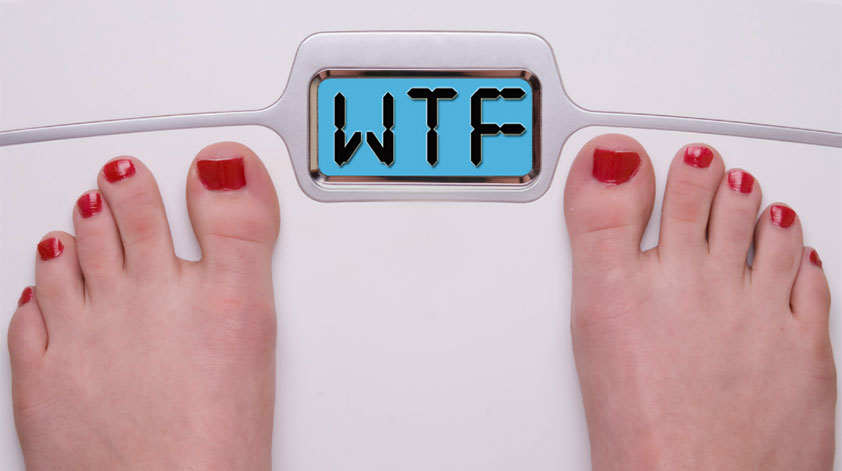
Carrying extra weight can put you at risk for various health conditions like heart disease, diabetes, and stroke. If you’ve struggled to lose unwanted pounds, know there are many safe, sustainable weight loss techniques to help you reach your goals.
Here is a comprehensive guide to understanding the causes of weight gain and utilizing the most effective solutions.
Common Causes of Weight Gain
Before determining how to lose weight, it’s helpful first to understand potential reasons why you may have gained weight in the first place:
- Diet
Eating foods high in processed carbs, added sugars, saturated fats, and overall calories can easily lead to gradual weight gain. Portion sizes also tend to be larger than needed.
Consuming excess calories from any food source will contribute to excess weight gain if not balanced with adequate activity.
- Lack of Exercise
A sedentary lifestyle with little physical activity means you burn fewer calories daily. Failing to do exercise that builds metabolism-boosting muscle can also slow your resting calorie burn.
- Medications
Some prescription drugs like corticosteroids, antidepressants, seizure meds, diabetes drugs, and antipsychotics may cause weight gain as a side effect.
- Underlying Conditions
Some health conditions negatively impact weight regulation, like hypothyroidism, PCOS, Cushing’s disease, chronic stress, poor sleep, and insulin resistance. These affect hormone regulation of hunger, satiety, and metabolism.
- Slowing Metabolism
The body naturally loses some metabolic efficiency as we age. The more muscle mass lost over time, the slower the resting metabolism becomes. Weight gain becomes easier with aging.
- Genetics
While not entirely deterministic, your genetic makeup can predispose you to obesity and make weight loss more challenging. However, a healthy lifestyle can overcome genetic tendencies.
- Pregnancy
It’s common for women to retain extra weight after giving birth, especially with multiple pregnancies. The demands of caring for a newborn can also derail healthy habits.
- Lifestyle Habits
Factors like chronic stress and sleep deprivation disrupt appetite-regulating hormones. A busy, less active lifestyle, oversized food portions, frequent restaurant meals, and ready access to unhealthy processed foods also play a role for many.
Dangers of Excess Weight
Carrying significant excess weight poses a number of risks to your health and quality of life:
- Obesity
Having a BMI over 30 puts you at high risk for hypertension, heart disease, stroke, type 2 diabetes, sleep apnea, metabolic syndrome, joint problems, and certain cancers.
- Increased Mortality
Being overweight or obese elevates your risk of premature death from a host of chronic diseases.
- Immobility
Excess fat, especially around the midsection, contributes to joint pain that may limit mobility and activity. This causes a downward spiral of reducing activity and slowing metabolism further.
- Mental Health
Being overweight often negatively impacts self-esteem. There is also a correlation between obesity and increased depression and anxiety. Reaching and maintaining a healthy body weight has immense benefits for both physical and mental well-being. The key is finding weight loss solutions tailored to your unique needs.
Setting Appropriate Weight Loss Goals
When embarking on a weight loss plan, it’s crucial to set realistic, sustainable goals:
- Losing only 1-2 pounds weekly allows for steady progress without drastic measures. Rapid weight loss is rarely permanent.
- Consider both your scale weight goal and body composition goals. Losing fat while maintaining lean muscle is ideal.
- Set fitness goals like being able to walk a 5K or lift a certain amount of weight in addition to the number on the scale.
- Make goals holistic – improved energy, balanced lab tests like cholesterol, stable blood sugar, better sleep, and feeling confident in your appearance.
- Use both the scale and how clothing fits as gauges of success in losing fat while maintaining muscle tone.
With appropriate expectations, you can make consistent progress without extreme highs and lows in motivation. Patience, perseverance and paying attention are key.
The Role of Diet and Exercise
The foundation of any weight loss regimen is eating healthier whole foods and increasing physical activity. While this may seem simplistic, proper nutrition and exercise truly are the cornerstones:
- Calorie Deficit
Burning more calories than you consume is required for weight loss. Aim for a modest deficit of 500 calories or less daily from your TDEE for 1-2 pound weekly loss.
- Balanced Macros
Focus on getting sufficient protein, healthy fats, and fiber while limiting processed carbs, added sugar, saturated fats, and excess calories.
- Hydration
Drink water as your primary beverage to stay full, prevent overeating, aid metabolism, and flush out toxins.
- Fitness
Build activity into daily routines, like taking the stairs or walking during lunch. Do structured exercise that elevates heart rate and builds muscle several times per week.
- Lifestyle Modifications
Adopt habits like prepping healthy meals, setting a consistent sleep schedule, and finding stress relief practices that facilitate weight loss.
A nourished, active body that works for you makes long-term weight management more sustainable.
Medical Options to Enhance Weight Loss
If diet and exercise prove insufficient for reaching your goals, certain medical interventions may give you the boost needed to succeed. Discuss these options with your doctor to see if they are appropriate:
- Prescription Medications
Drugs like phentermine suppress appetite while others block fat absorption or balance hormones.
- Weight Loss Injections
HCG, vitamin B12, lipotropic, or peptide hormones administered via injection can ramp up metabolism, energy, and fat burning.
- Surgery
For those with severe obesity (BMI over 40), procedures like gastric sleeve, gastric bypass, or gastric banding surgically limit stomach capacity.
- Devices
Implants like gastric balloons take up space in the stomach. Others, like vagal nerve stimulators, curb hunger signals.
These treatments may help kickstart your slimdown and overcome weight loss plateaus when combined with lifestyle changes. Discuss risks and benefits of weight loss injections with your provider.
Seeking Support and Motivation
Making major lifestyle changes is challenging, so utilizing resources to stay motivated can make or break your success:
- Support Groups
In-person or online groups create community and accountability for those seeking weight loss. Overeaters Anonymous, Weight Watchers, or social media groups are options.
- Counseling
If emotional or mental health factors contribute to your weight struggle, seek therapy to develop healthy coping outlets.
- Tracking Progress
Apps, fitness trackers, before and after photos, a weight loss journal, or progress charts help you stay on track.
- Accountability Partner
Choose a friend, relative, or trainer as a weight loss ally. Check in regularly and cheer on each other’s progress.
- Inspiration
Follow social media accounts, blogs, or influencers who share motivational weight loss content to stay focused. Remember, it’s okay to ask for help. Surrounding yourself with a supportive community makes success more likely.
Maintaining Weight Loss Long-Term
Losing weight is one thing, but keeping it off long-term is critical for health. To maintain results:
- Stick to your new healthy eating and exercise habits. Don’t revert to old patterns.
- Weigh yourself weekly or bi-weekly to catch any creeping gains before they escalate.
- Periodically recheck labs like cholesterol, blood pressure, and blood sugar to monitor your health.
- Follow your doctor’s advice for continuing care, like reduced medication doses or follow-up appointments.
- Allow occasional small treats without guilt, but get right back on track. Don’t let it derail your progress.
- Remain vigilant with portion control and weigh-ins, but also celebrate your accomplishments.
Committing to permanent, positive lifestyle changes enables you to manage your weight long-term successfully. The effort is well worth it for the long term, life-affirming health benefits.
Safe, sustainable weight loss is achievable through strategic lifestyle changes, utilizing available resources, and seeking medical guidance tailored to your unique needs. With consistent effort and support, you can lose excess weight, lower your disease risk, and accomplish your health goals for a happier life.









